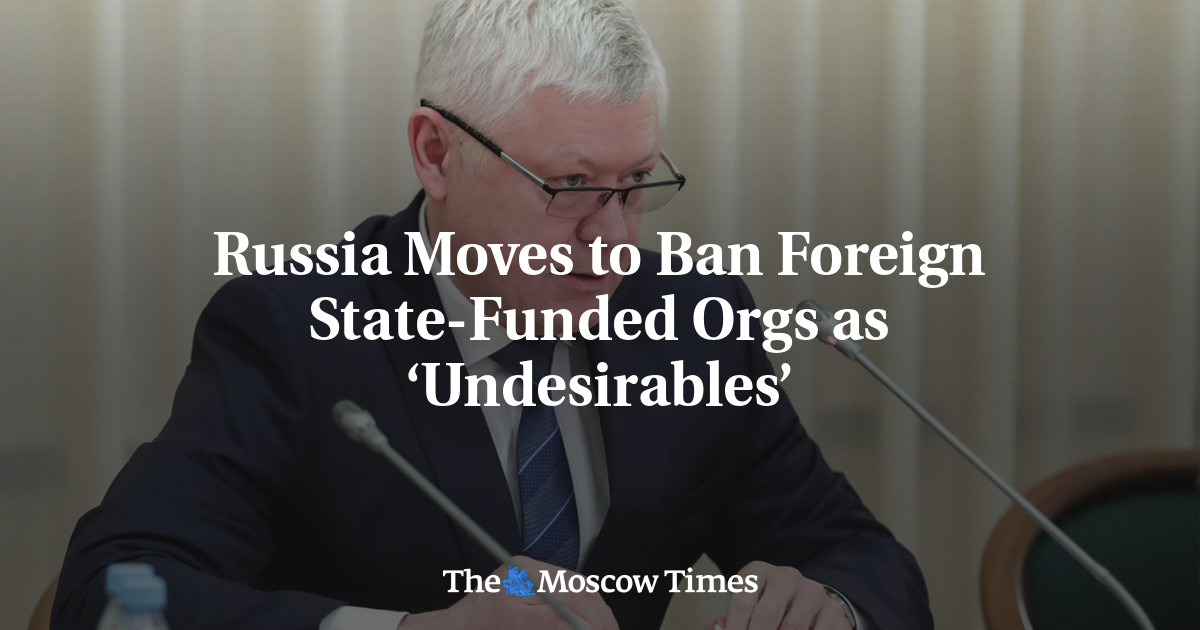
Russian lawmakers on Monday introduced a bill that would expand current legislation on “undesirable” organizations to include state-sponsored entities in addition to non-governmental organizations.
Since launching their “undesirable” list in 2015 to crack down on foreign-funded NGOs, Russian authorities have expanded the law to target independent news outlets, human rights groups, environmental organizations and educational institutions.
Vasily Piskarev, who heads the lower-house State Duma’s committee on foreign interference, accused the West of forcing Russia to expand its criteria for “undesirable” organizations.
“It’s absolutely unimportant to us who established an organization that harms our country and works to destroy Russia from abroad,” Piskarev wrote on the messaging app Telegram.
The lawmaker said the new bill is designed to fight “sanctions, blocked investment projects, training agents of influence, interference in Russian elections, incitement of ethnic hatred and much more.”
Piskarev noted that organizations to which Russia is a member will not be labeled “undesirable,” nor will agencies of foreign states.
Legal experts have speculated that the bill aims to blacklist foreign state-funded media outlets such as RFE/RL, BBC and Deutsche Welle.
Organizations labeled “undesirable” must cease all operations inside Russia, and it is illegal for individuals and media outlets in Russia to republish or share their content.
Russia’s Justice Ministry database currently lists 137 “undesirable” organizations.